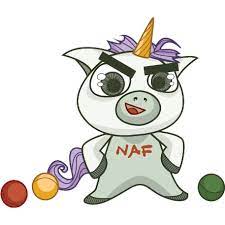Hi everyone, before we get started, next week, May 23rd, at 10:30am Pacific Time, Edgar Villanueva (my brother from another mother and also another father) and I will once again be having a session of “Decolonizing AF.” It’s an informal Instagram Live conversation where we talk about nonprofit, philanthropy, and whatever else is on our minds, with much cussing. Captions auto-generated by Instagram. See you there.
Since the start of the pandemic, I’ve been using the hashtag #CrappyFundingPractices to publicly call out funders who were doing ridiculous and/or harmful things. Well, several years have passed, and it seems some funders are still doing crappy things. In fact, there are several innovative new shenanigans! Thank you to all the funders who are awesome. However, we still have many funders whose unreasonable and clueless requirements are jeopardizing nonprofits’ work and thus harming people.
Here is a list of #CrappyFundingPractices that have been called out under the hashtag. If you are at a foundation, please check that you’re not doing these things below, because your foundation may be called out by name:
- Excessive requirements for small amounts of funding: No one should be required to prepare a five-page narrative, eight attachments, and sign a blood oath to give up their firstborn, for a $1,000 grant.
- Making nonprofits translate their budget into a funder’s budget format: It is ridiculous and self-centered for any funder to expect anyone to convert their budgets into the funder’s format, especially if the funder’s format is in—gasp!—Microsoft Word!
- Insisting that grant applicants print out and mail in or deliver grant proposals: Let that be an option in case some applicants can’t email their proposal for some reason. Requiring it of everyone, however, is environmentally insensitive and time-wasting.
- Not funding overhead: Funders who are still allergic to overhead, or whatever their misguided perception is of overhead, need to be called out publicly. We have been battling this for years, and we’re losing patience.
- Not funding staff salary: Some funders are ok with funding some overhead, just not compensation for the people doing the work. Who do they think is doing all the work? Elves? ChatGPT now, I guess?
- Restricting the funding of overhead to a certain percentage, usually 10%: If you have any sort of percentage restriction, you are insisting you know more about how a nonprofit should do its work than the nonprofit does. You’re silly, and you will be called out.
- Cutting off accepting grant proposal submissions after a certain number has been reached: This is one of the “innovative” new shenanigans. To only take the first 100 LOIs or the first 200 proposals or whatever means hundreds of people wasted thousands of hours doing work for nothing. Unconscionable.
- Requiring any sort of documentation of board approval for the grant application: Grants are operations, which the board should not be involved in. Stop forcing nonprofits to blur the lines of autonomy and responsibility between board and staff.
- Having nonprofits to farm for votes in popularity-based contests: If you require nonprofits to waste their time harassing their networks for votes or likes on social media, you will be called out. Forcefully. I cannot stress enough how shitty and demeaning this practice is.
…









